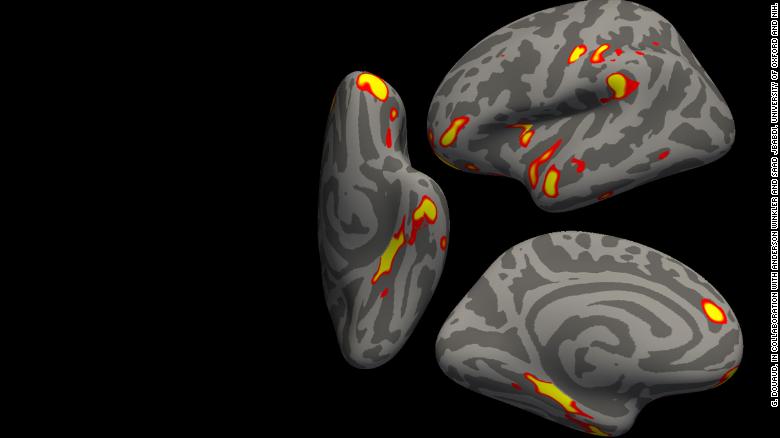
(CNN) – An additional 42 genes connected to the development of Alzheimer’s disease have been uncovered in the largest study of genetic risk for Alzheimer’s to date.
“This is a landmark study in the field of Alzheimer’s research and is the culmination of 30 years’ work,” study co-author Julie Williams, center director at the UK Dementia Research Institute at Cardiff University, said in a statement.
“Lifestyle factors such as smoking, exercise and diet influence our development of Alzheimer’s, and acting to address these now is a positive way of reducing risk ourselves,” she added. “However, 60-80% of disease risk is based on our genetics and therefore we must continue to seek out the biological causes and develop much-needed treatments for the millions of people affected worldwide.”
The previously unknown genes point to additional pathways for disease progression besides the well-known APOE e4 gene or the development of amyloid beta and tau, two hallmark proteins that build up in the brain with devastating results as Alzheimer’s progresses.
“Creating an extensive list of Alzheimer’s disease risk genes is like having the edge pieces of a puzzle put together, and while this work doesn’t give us the full picture, it provides a valuable framework for future developments,” said Susan Kohlhaas, director of research at Alzheimer’s Research UK, who was not involved in the research.
A number of the newly discovered genes focus on very detailed reactions between proteins in the body that govern how inflammation and the immune system might damage brain cells, the study found.
“The new risk variants identified in the present study are significantly associated with progression” to Alzheimer’s disease, says the study, published Monday in the journal Nature Genetics.
The discovery will provide scientists with potential new targets for treatments, medications and lifestyle changes that might reduce the risk of the deadly brain disease, experts say.
“The future of Alzheimer’s disease is precision medicine and prevention,” said Dr. Richard Isaacson, director of the Alzheimer’s Prevention Clinic in the Center for Brain Health at Florida Atlantic University’s Schmidt College of Medicine.
“This paper gives us so many more tools in our toolbox to, eventually, more precisely target Alzheimer’s disease,” said Isaacson, who was not involved in the study.
New disease pathways
The global study analyzed the genomes of 111,326 people with clinically diagnosed Alzheimer’s and compared those with genes from 677,663 cognitively healthy people. The genomes were supplied by clinics in over 15 members of the European Union, Argentina, Australia, Brazil, Canada, Iceland, Nigeria, New Zealand, the UK and the United States.




